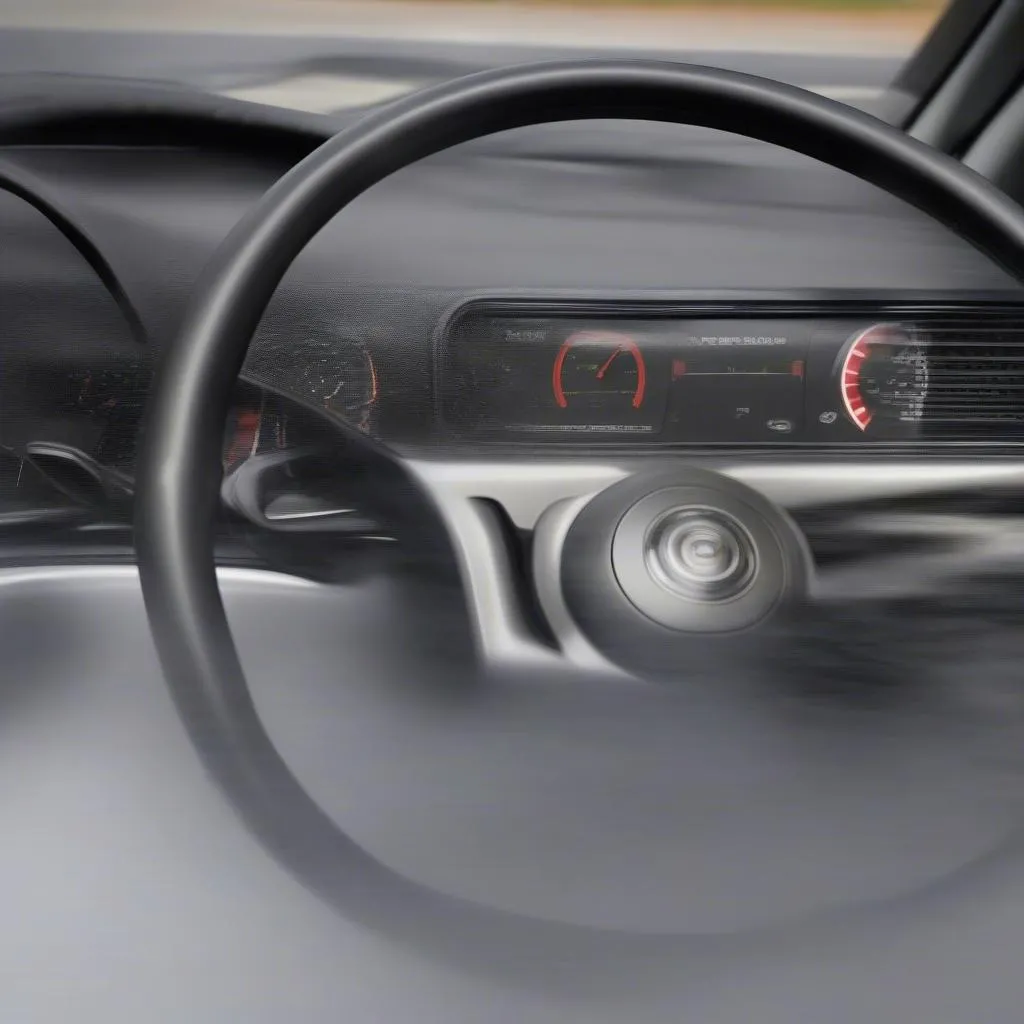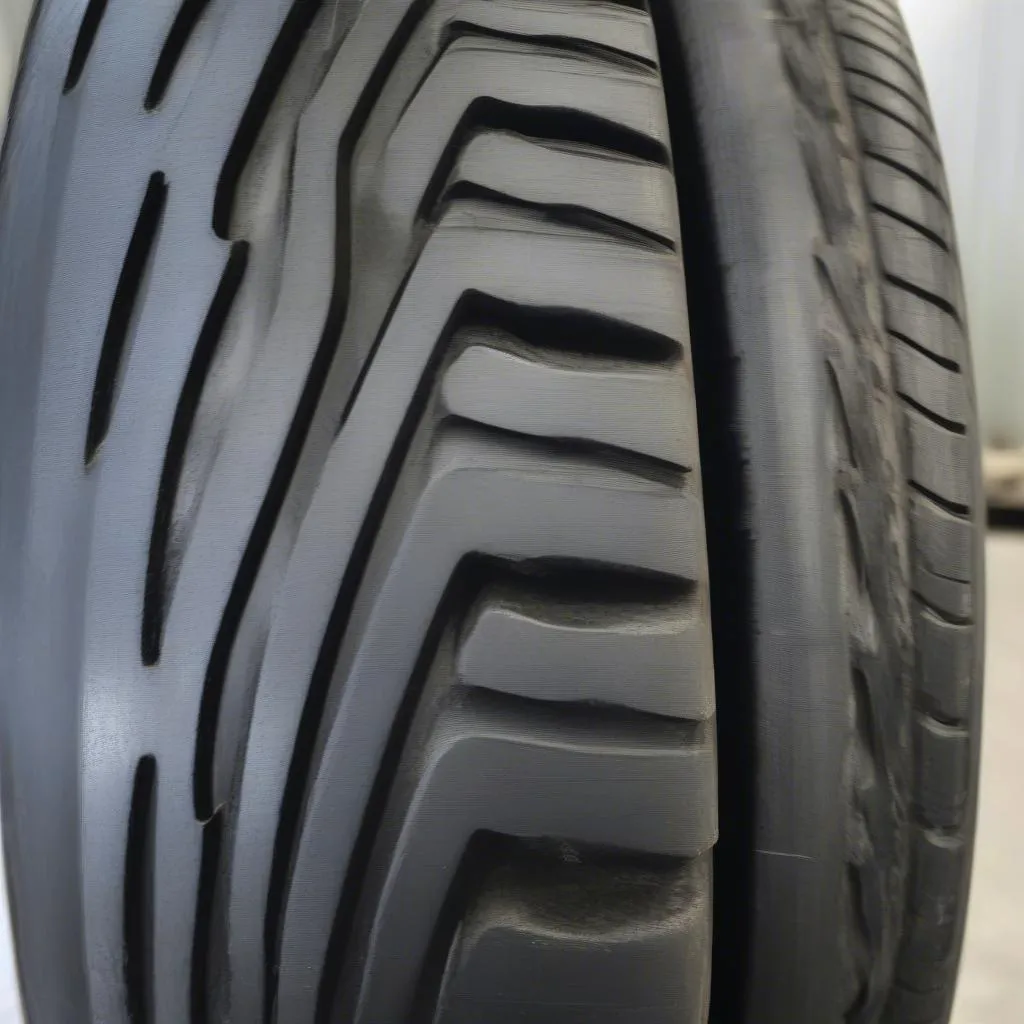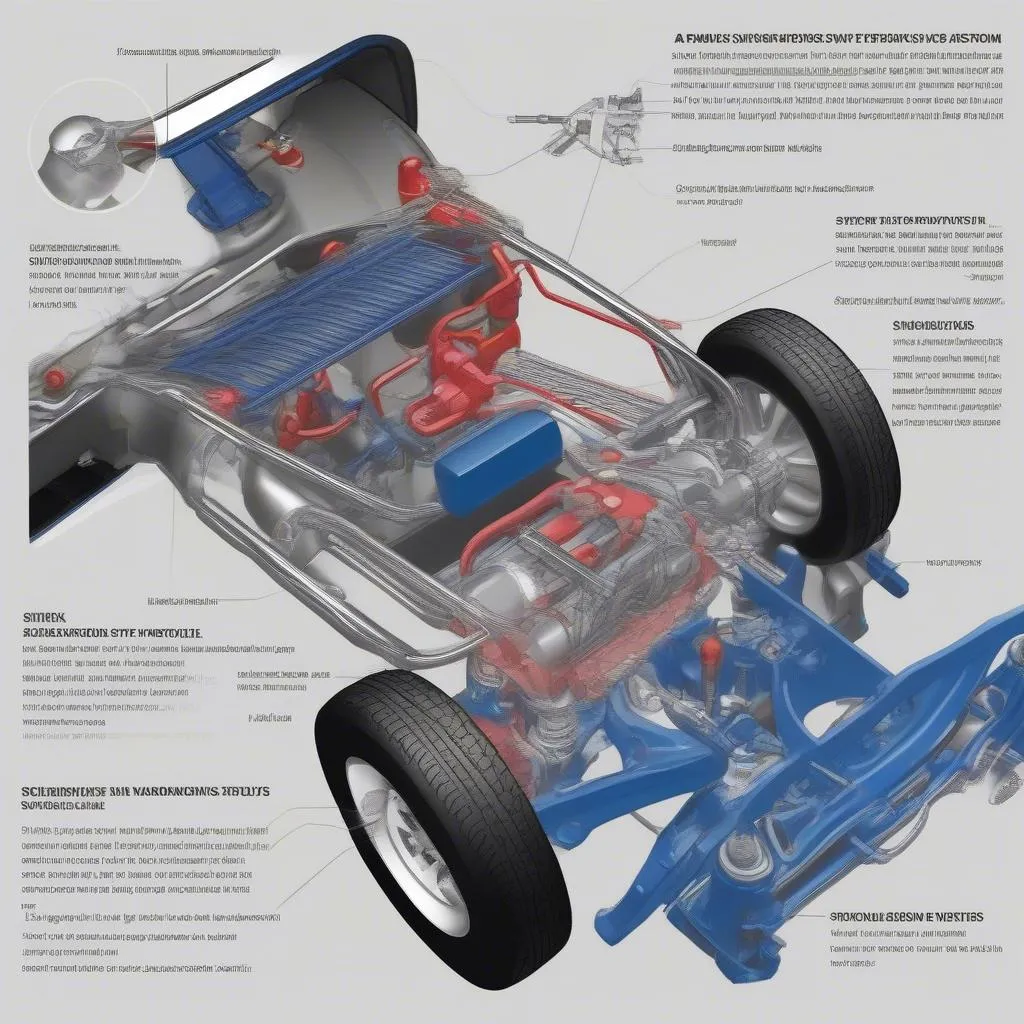Imagine cruising down the highway, enjoying the open road, and suddenly your car starts shaking. This is not just a minor inconvenience; it’s a potential safety hazard that requires attention. So why does your car vibrate at 60 mph?
Understanding the Vibration at 60 mph
A car vibrating at 60 mph can be caused by various factors, and pinpointing the root cause requires a careful diagnosis. As a professional working in the automotive repair field, I know the importance of accurately identifying the problem.
Common Causes of Car Vibration at 60 mph
Let’s break down the common reasons why your car might be shaking at 60 mph:
1. Wheel Imbalance:
A common culprit is wheel imbalance. When the weight distribution on your wheels is uneven, it can cause vibrations at specific speeds, especially around 60 mph. Think of a spinning top – if its weight is off, it wobbles. The same principle applies to your car’s wheels. Imagine driving along a highway in your Ford Mustang, and suddenly the car starts shaking. The chances are it’s due to the wheels being unbalanced.
2. Tire Wear:
Uneven tire wear can also cause vibrations. Imagine you’re driving your Nissan Altima, and the tires are worn down on one side more than the other. This uneven wear pattern will affect the way the tire interacts with the road surface, leading to vibrations at speed.
3. Damaged Wheel Bearings:
The wheel bearings are responsible for supporting your wheels and allowing them to rotate smoothly. If they become worn or damaged, they can cause vibrations that intensify at higher speeds. Think of them as the “ball bearings” of your car wheels.
4. Suspension Issues:
A worn or damaged suspension system can also cause vibration. The suspension components, such as shocks, struts, and control arms, are responsible for absorbing bumps and keeping your car stable. Imagine driving your Toyota Camry down a rough road, and your suspension is starting to wear out. The car will start shaking as the suspension struggles to absorb the bumps.
5. Drivetrain Issues:
Problems in the drivetrain, such as a worn CV joint or a damaged driveshaft, can also lead to vibrations. The drivetrain is responsible for transferring power from the engine to the wheels. Imagine driving your Honda Civic and experiencing a vibration, and suddenly you think about the car’s drivetrain system.
6. Engine Misfires:
A misfiring engine can also cause vibrations, particularly at higher speeds. Imagine you’re driving your BMW X5, and your car is shaking and the engine light comes on. It could be an indication of an engine misfire.
What To Do When Your Car Vibrates at 60 mph
If your car vibrates at 60 mph, it’s crucial to address the issue promptly. Ignoring it can lead to further damage and potentially dangerous driving conditions.
First Step: Visual Inspection
If you’re comfortable doing so, you can start by inspecting your tires and wheels for any visible damage.
Next Step: Seek Professional Help
It’s highly recommended to consult with a professional mechanic, especially if you notice significant vibrations. They can diagnose the problem accurately and recommend the necessary repairs.
What If My Car Only Shakes At 60 mph?
Some drivers notice a vibration only at 60 mph and not at other speeds. This points to a specific issue related to the car’s dynamics at that particular speed. This is a very common problem, especially with high-performance cars.
Frequently Asked Questions
Q: I just had my tires rotated and balanced, and my car still vibrates at 60 mph. What could be the problem?
A: A tire rotation and balance won’t fix every issue. Sometimes there are deeper problems like worn suspension components or even issues with the drivetrain.
Q: Is it dangerous to drive my car if it vibrates at 60 mph?
A: While it’s not always dangerous, a vibrating car can indicate underlying problems that could worsen. It’s best to address the issue as soon as possible.
Q: What are some other signs of problems in my car’s suspension system?
A: Other signs include uneven tire wear, noisy steering, difficulty turning, and a bouncy ride.
Q: My car is shaking violently at 60 mph. Should I pull over immediately?
A: Yes, it’s best to pull over to a safe location and assess the situation. Check for any visible damage to your tires or wheels. If you’re not comfortable inspecting it yourself, call for assistance.
Conclusion
A car vibrating at 60 mph can be a worrying experience, but understanding the potential causes helps you take the right steps. Don’t ignore the issue – address it quickly and prevent further damage.
If you’re unsure about the cause of the vibration, consult with a qualified mechanic. They can diagnose the problem and offer the best solution. Remember, a safe and smoothly running car is vital for a pleasant driving experience.
 vibration-at-60-mph
vibration-at-60-mph
 uneven-tire-wear
uneven-tire-wear
 car-suspension-parts
car-suspension-parts
Don’t hesitate to reach out to our team of experts at Diag XCar if you need assistance with diagnosing and repairing your car. We’re available 24/7 to help you get back on the road safely. Contact us via WhatsApp: +84767531508